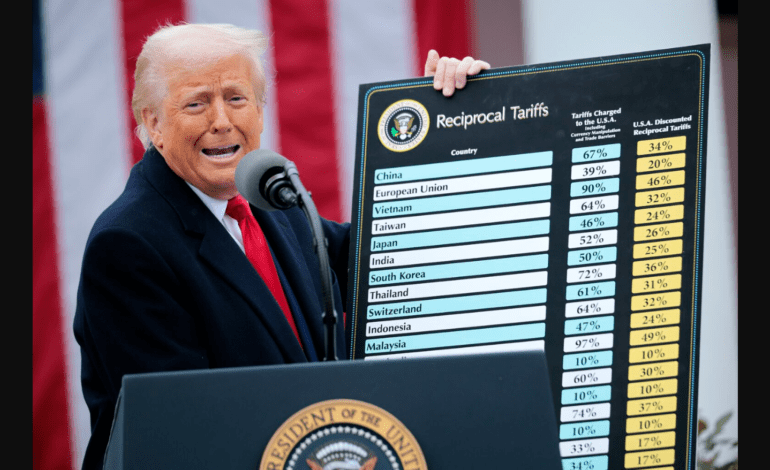
Pakistan to initiate tariff talks with US amid export concerns
Prime Minister Shehbaz Sharif has approved the dispatch of a high-level delegation to the United States to negotiate reduced tariffs and increased market share amid fears of significant export losses. The move comes in response to the US announcing additional tariffs, which could cut Pakistan’s exports to Washington by hundreds of millions of dollars.
According to government sources, the delegation will seek to lower tariffs on at least 55 product lines and will also address US concerns related to non-tariff trade barriers, including the ongoing ban on social media platform ‘X’.
“These reduced tariffs would align with the terms granted to China under its Free Trade Agreement with the US,” the sources noted.
The decision follows former US President Donald Trump’s tariff hike announcement, which has already prompted some Pakistani exporters to receive order cancellations from American buyers.
“The government is keen to further strengthen the trade partnership with the US,” said Sharif, underlining the long-standing economic ties between the two nations.
Think tank Tabadlab estimated the 29% increase in tariffs could result in a $564 million loss in exports for the fiscal year 2025–26. In a worst-case scenario, the losses could rise to $2.2 billion.
The tariff increase is part of the broader US-China trade dispute, which escalated after China imposed 34% retaliatory duties on US goods, responding to Washington’s 104% tariff hike on Chinese imports.
The US has justified the additional 29% duty on Pakistani goods as a measure to offset its $3 billion trade deficit with Pakistan. It has also expressed concerns about online restrictions and non-tariff trade barriers, including the ban on ‘X’.
In response, a Steering Committee and Working Group advised Sharif on strategic options, leading to the planned delegation comprising top exporters and business leaders.
Pakistan’s negotiation strategy includes offering the US lower tariffs on goods like cotton, petroleum products, and soybeans. With cotton imports from the US already duty-free, Pakistan is expected to promise increased purchases of the commodity.
Islamabad will also seek a return to pre-April 4 tariff levels or reductions comparable to competitors such as Egypt and Turkey. The aim is to maintain Pakistan’s competitiveness and stabilize its export-dependent industries in the face of global trade pressures.